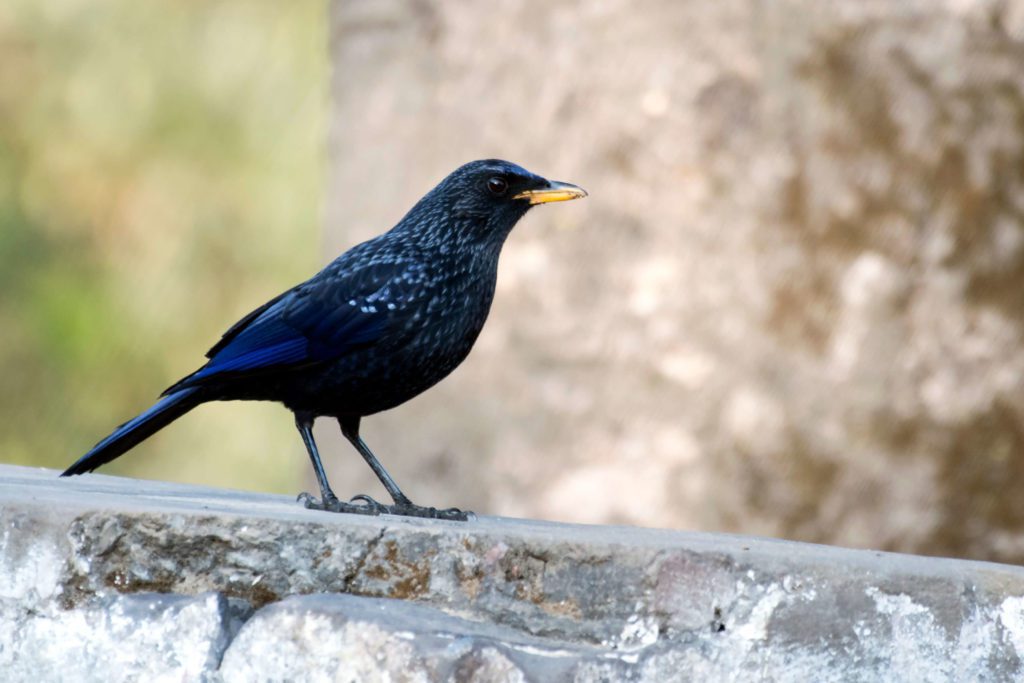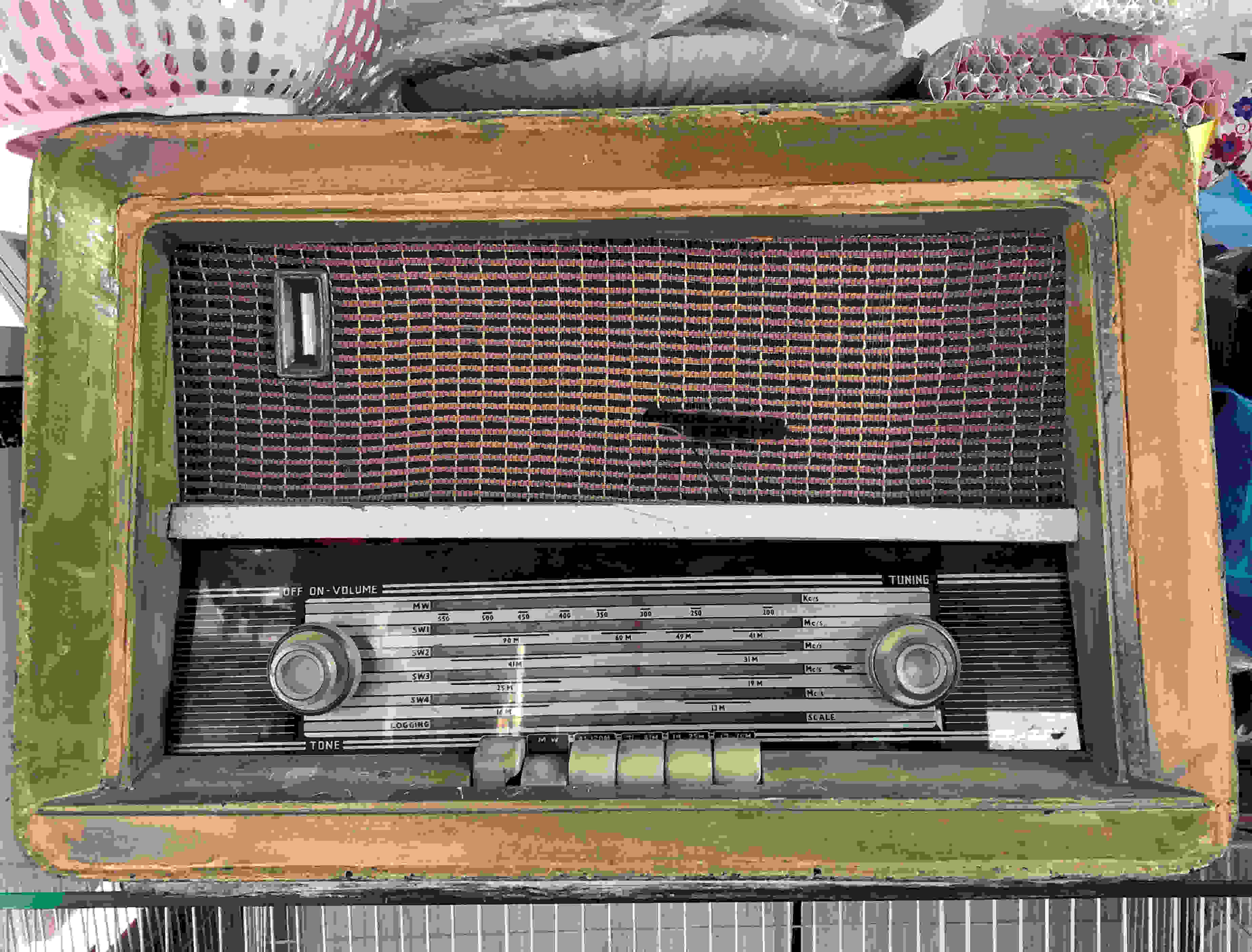Reading Time: 8 minutes
An old radio represented the old-world order, a more innocent time of his father. For Dr. Swaraj , memories from the past and life at present times crisscrossed. An exclusive for Different Truths.

Memories buried deep, and almost forgotten, have the uncanny habit of popping out suddenly. A barely perceptible sensory cue is enough to trigger remembrance of things past. When this happens, time and space collapse. The mind embarks on a nostalgic time travel into the past, which comes alive. The sensory déjà vu allows the nostalgic time traveller to inhabit multiple time zones.
This is exactly what happened on a windy evening, in Dagshai, in July, this year. The stimulus for the internal journey came from an old radio playing old film songs.
The evening of the sonic encounter was pleasantly chilly. Gathering clouds were hinting at heavens opening and pouring any time soon. Shivalik hills generally get drenched in copious rains around this time of the year. But the rains this year were rather scanty. The sere hills and rocks, uncovered by mosses, appeared dull brown and greyish. The withered undergrowth also narrated the story of aberrant weather phenomena.
Footloose in Lower Shivalik
Wanting to escape the din of the plains, I was footloose with a friend in the lower Shivalik hills. We were enjoying coffee under a gazebo of green corrugated sheets outside the Dagshai Central Jail and Museum. The coffee shop owner, a quirky bearded person, who loves to don a baseball cap, is always ready for a chat. He loves to regale his customers with stories of Dagshai’s past.
He drives daily from Chandigarh to Dagshai in his Hyundai i10 with his German Spitz. The tranquility of the place has perhaps affected his dog’s temperament also. A low-profile docile canine, he generally keeps quiet. And when he does bark, it is a gentle, almost an apologetic bark.
The songs of some birds accentuated the silence. A crepuscular Blue Whistling Thrush would launch into its whistling with verve.
While enjoying my coffee, I felt as if I were a part of the stillness all around. The songs of some birds accentuated the silence. A crepuscular Blue Whistling Thrush would launch into its whistling with verve. Russet Sparrows, Himalayan Bulbuls and a Streaked Laughing Thrush also lent their voices to nature’s symphony.
Two grey langurs emerged from a thicket and sat in the middle of the road. They remained unfazed by our presence. Their languid manner indicated that they were perfectly at home even in the middle of the road. Life surely moves in a slow lane in Daghshi. Nobody ever seems in a hurry except playful monkeys pursued by stray gaddi dogs. We too were in no hurry to leave that place.

An Old Song
Suddenly, an old song wafted like a sweet aroma from somewhere. It spread its sweetness everywhere, making the whole atmosphere melodious. It was an old song from a 1956 film Chori Chori: “Panchhi banoon udti phiroon mast gagan mein / Aaj main azad hoon duniyan ke chaman mein” (Bird like I want to fly with abandon in the blue / Free I am today in the garden of this world). Curious to find the locus of the song, I started looking around. Just then, the glass door of the coffee shop opened, and the music became louder. I got up and with the coffee cup in my hand, I entered the shop.
A vintage Murphy radio with tell-tale signs of having aged was sitting on a glass shelf. Its yellowish plastic casing had faded and turned sepia …
A vintage Murphy radio with tell-tale signs of having aged was sitting on a glass shelf. Its yellowish plastic casing had faded and turned sepia like old photographs and memories. The mesh covering the speaker was torn. A plastic drainer basket and disposable plates were placed on its roof. It was big, with two knobs and six push buttons. It was playing old melodies being broadcast from AIR, Shimla. The radio and the songs transported me into another world, more than half a century ago. I was reminded of my father’s radio and our special attachment to it.
My Father’s Radio
Those were fine days marked by conviviality in the late 1960s. A matter of pride for our family, my father’s four knobbed radio was quite big. Mediumwave, Shortwave I and II, were the bandwidths it covered. My father loved to listen to news bulletins and the BBC programmes. Vividh Bharti radio plays were my mother’s favourite. I liked Binaca Geet Mala, a programme of film songs broadcast from Radio Ceylon. Later, it was rechristened as Cibaca Geet Mala, and Ceylon became Sri Lanka. These names never clicked with me.
Whenever we received a visitor, my father very proudly showed him our radio. It had become a permanent fixture in our baithak, our living room. Patting it very affectionately, he would say, “It took me my life’s earnings to buy it. It’s made in Germany, you know, made in Germany.” His pet refrain was that his radio had no peers.
For a very long time our radio lent us our identity. Nobody else in our neighbourhood had such a gizmo.
For a very long time our radio lent us our identity. Nobody else in our neighbourhood had such a gizmo. Ours was the only ‘radio wala house’, the house with a radio in the entire mohalla – locality. Even the postman knew it.
Our neighbours often came to us for the news bulletins. Nobody went back without the knowledge that the radio was a marvel of German engineering. It attained celebrity status during the 1965 Indo-Pak War. Though the BBC broadcast was a short-wave affair, but it rode on high credibility waves. So did our radio. Our neighbours started coming daily for the BBC Hindi news in the evening. Lengthy discussions on national and international affairs followed the news session. My father, obviously being better informed, courtesy our radio, always had the last word.
Snag in the Radio
Then one day our radio developed some snag. It fell silent. We checked all the connections. But nothing helped, neither cajoling, nor gentle slapping on both the sides. We were in a daze. My father could not comprehend how his German radio could go dumb. We took it to a reputed mechanic known as Ustad ji. He was a short-statured dynamo of energy who could infuse new life into any dead radio.
When we reached his workshop early in the morning the next day, he was already at work. He was in a chair with a soldering rod in his hand. Lying on a huge table in front of him was a tangled mass of wires and vacuum tubes of different sizes. Many radios lay scattered on a bed behind him. Obviously, they were awaiting the magic of his deft hands to spring back to life.
… he had a look at our radio. He told us to put it on the bed and come back after two days.
He listened impassively to my father even as he went on soldering something. Then he had a look at our radio. He told us to put it on the bed and come back after two days. My father was anxious to know if at all it could be repaired. Ustad ji smiled and said, “Is there any radio in this world that I can’t repair?” His cockiness impressed me, but my father said rather apprehensively, “But it is made in Germany?” Ustad ji’s poker face showed just a hint of annoyance as he snapped, “I know. Don’t tell me it is Germany or Japani or whatever! I’ve repaired many like yours.” It was my father’s turn to retort, “If you can do it so easily why don’t you do it just now?” “Don’t you see how busy I am? Come and take it after two days. And if you’re in such a tearing hurry, find some other mechanic,” he said dismissing us peremptorily with a wave of hand.

Silence in Baithak
My father shook his head in disbelief. How could the Germans make such radios which a small-time mechanic in a sleepy town like Patiala could repair? Fearing that the irritated Ustad ji might order us out, I dragged my father out.
The next two days were very long indeed. The absence of the radio meant no music and no news of the world. Unbearable silence prevailed in our baithak. My father missed his news, though his Urdu language newspaper compensated him for his loss. My mother missed her dramas. I missed my songs. The newspaper could not act for her and sing for me.
My father had all the time in the world to find fault with everyone at home. His pride in German engineering had taken a huge blow.
My father had all the time in the world to find fault with everyone at home. His pride in German engineering had taken a huge blow.
My father had all the time in the world to find fault with everyone at home. His pride in German engineering had taken a huge blow. He had grave doubts about the claims made by Ustad ji.
My father did not sleep properly during the two nights his radio was at the workshop. Tossing in bed he remained alternating between periods of wakefulness and short snatches of sleep. He went on mumbling even in his dreams ‘it cannot be repaired’. He was worried about what he would say if someone came for the evening news. The news about the radio remained a closely guarded secret.
Radio Repaired, Pride Dented
Anyway, Ustad ji proved true to his word. He repaired our radio, and to a certain extent our dented pride also, for a paltry sum. For a long time, our radio held its sway in our neighbourhood. And then my childhood buddy Manjit’s father – they were our neighbours – also purchased a radio. It was Murphy. The news spread in the entire neighbourhood like wildfire. My father, however, remained singularly unimpressed. How could Murphy compete with his German radio?
Nevertheless, as luck would have it, things did take an unexpected turn one evening. I was at Manjit’s house. A Punjabi song – cheecho cheech ganerian do terian do merian (Sip sip sugar cane, two pieces for you and two for me) – sung by Asa Singh Mastana started playing on their radio. It was one of my favourites. Whenever I heard it, I imagined myself sipping peeled segments of sugarcane on a balmy winter morning in the company of my buddies. I could feel vividly even the sweet relish of the cane juice in my mouth.
Imagining that the mellifluous voice of our radio would make these sensations sweeter still, I made a dash for my home.
Imagining that the mellifluous voice of our radio would make these sensations sweeter still, I made a dash for my home. On reaching home I switched it on. But the vacuum tubes inside it took their own sweet time to warm up. When the radio finally came into its own, the song was already over. All sweetness had vanished. In sheer frustration I blurted, “Papa this radio doesn’t play my favourite song. You must replace it with a Murphy.” My father was shocked but kept quiet. He was deeply hurt by my indiscreet remarks.
One day, months after this incident, he surprised us by bringing a new transistor. The make was Murphy. We just had to press a button and presto, it started without any delay. And we could take it anywhere we liked. We all, save my father, got addicted to the new toy.
German Radio Lost its Position
Apparently, our four-knobbed German radio lost its position of eminence. My father remained devoted to it. He listened to his favourite programmes loyally on it. But he stopped telling others that it was a German thing. He would resignedly opt for silence when we praised the new transistor. Now, I opt for silence when my sons praise the miracles their mobile phones and computers perform.
In the sylvan environs outside the Dagshai jail, the old Murphy still performs some miracles. It is an old fogey ruling over the hearts of those who like to slow down. Its very sight opens a doorway to old memories and the silent joys associated with them.
Photos by the author

















The memories associated with radio, specifically tapping gently on its side to make it working, are priceless. The sound of music played on radio in still night is still so mesmerising, specially if it is played at a distance. Equally, mesmerising is your way of narration, Sir.
Grateful to you, Dr. Ankdeep beta. Happy to know that you liked it.
Every point in time, a new gizmo emerges. Earlier, there were German-made, then Murphy and at present mobile inbuilt radios. However, the magic of radio still subsists.
It is a truly endearing composition. The article provokes memories of the good old days.
I was partial to Hawa Mahal too. Besides Binaca Geet Mala, All the nostalgia for the radio is deep felt and moving.
Beautiful expression depicting this whole scenario of old memories. How the old radio playing hindi songs transported you back home when you were emotionally attached to your radio bought by your father. How this vintage item lost its sheen with a new transistor and then mobile phones and computers made it obsolete, is an indication of how new generations are replacing old ones and the latter becoming junk items. A valuable lesson this meticulously written story conveys.
Another very thought provoking piece by Swaraj. The changes in the generations and their surrounding world are a very interesting area of observations and study. It is difficult to come out of the aura and charisma of one’s age and, here, the ‘radio’ is serving as a perfect symbol. JUst like b/w films, in these times of colourful images, still have their mesmerizing effect on our minds, the sound of radio is also not less than a magic for a person like me even compared to today’s tv or the new audio devices. But at the same time things have to move forward. I personally am still in possession of an old German radio of my father in law who died in mid fifties but I also make use of the new gadgets of the contemporary period that my son from US keeps me acquainted with.
This article has inspired me to further learn how to respect all people of all generations. Amitabh Bachchan is doing a great program the ‘kaun Banega Crorepati’ but I should have an equal respect for Amin Syani of Radio Ceylone ( Binaca Geetmala) and Tariq Aziz of PTV (Neelam Ghar) . I am happy that the article of Swaraj Raj has endorsed my views. Thanks
How the succinct narration takes us through memory lanes.. very evocative.. the reader can identify his own precious nostalgic moments embedd inthe past